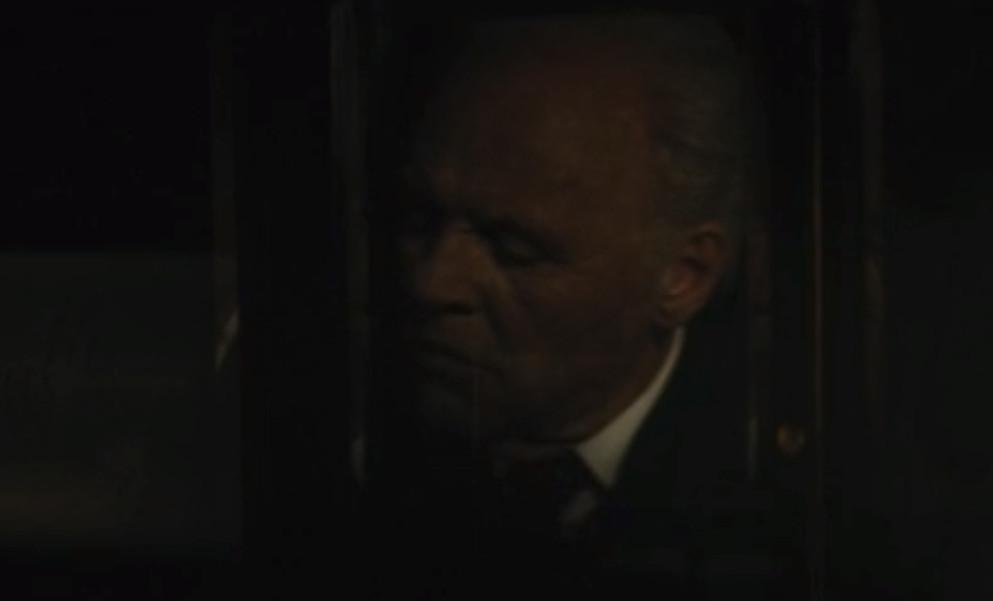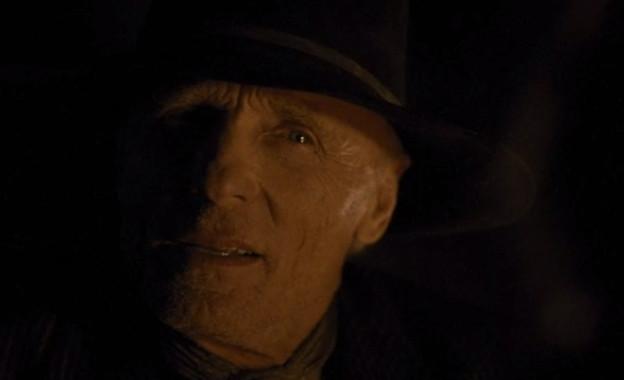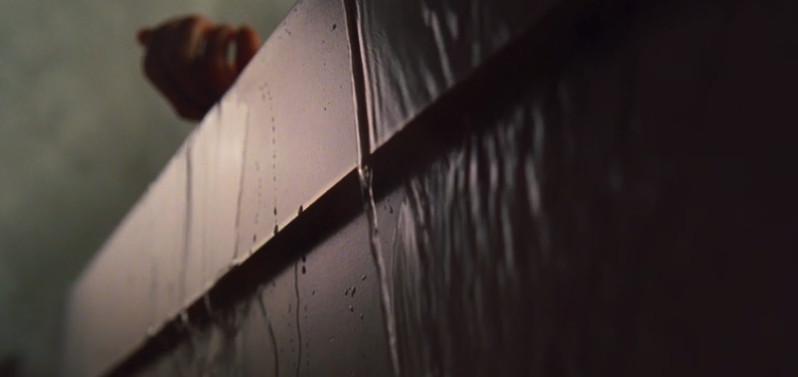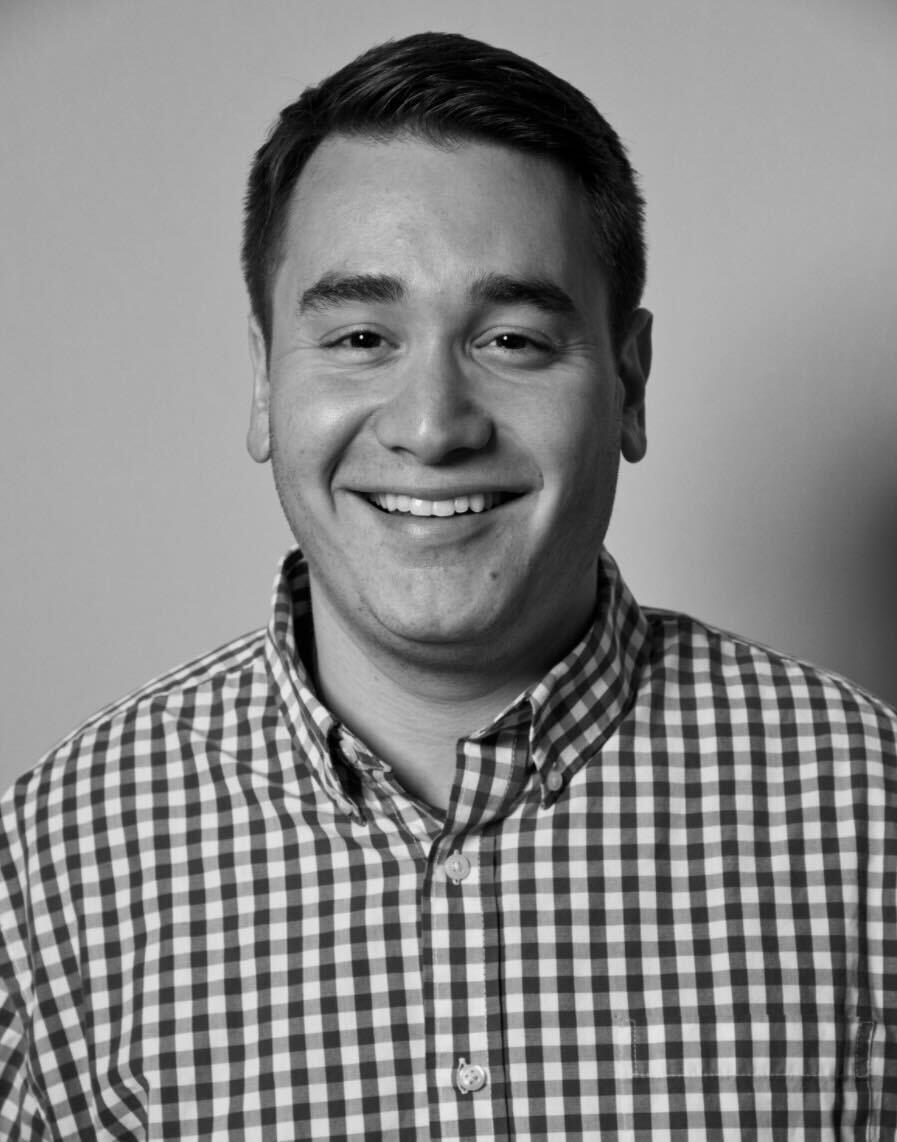
I wish I could reach through this screen and give you a high five, old friend, because that episode was completely bonkers. “Phase Space” was the most anticipated installment of Westworld’s second season, billed as a genuine game-changer, and it yanked at our heartstrings like Akane preserving the spirit of Sakura. Open your mind like Bernard (remember, the pain is just programming), and let’s dive into this week’s most pressing questions.
Wait, WHAT WAS THAT LAST SCENE?
THAT WAS BANANAS! We can now safely refer to this show as “Lost, but with computers.” At the end of the episode, Bernard gets his robot brain sliced out of his head and uploaded into the cradle (CR4-DL, or the Westworld version of the matrix). Then, he proceeds to find Ford— ROBERT FUCKING FORD—playing the piano.
“Hello, old friend,” Ford says. He might as well have been breaking the fourth wall and speaking directly to us.

We don’t see Ford, only his reflection in the glass, a clear indication that what’s been uploaded into the cradle is a reflection of the character whom Dolores shot in the head during the Season 1 finale. That doesn’t lessen the impact of the surprise: FORD IS BACK!
Let’s recap for a moment how exactly this is possible. With the James Delos experiments that were shown in “The Riddle of the Sphinx,” the show established that it was possible for a human being’s consciousness to be uploaded onto a control unit (those things that look like rubber bouncy balls). We’ve also seen repeated flashbacks in which Bernard uploaded someone’s consciousness onto a control unit and pocketed it. The question until this point was simple: Whose consciousness was on that bouncy ball?
Now, the answer seems clear. (Well, as clear as things get in Westworld.) Bernard went back into the underground lab in the cave to upload Ford’s consciousness onto a control unit, then uploaded that control unit into the cradle, where Ford now lives on as a ghost in the machine/God. Showrunners Jonathan Nolan and Lisa Joy explained the cradle in a video posted by HBO after the episode.
The implications of this are overwhelming. Elsie calls the cradle a “hive mind” where every host’s mind is uploaded and exists in a big computer simulation. Ford is seemingly pulling the strings from the inside, and based on the way he’s sporadically spoken to William through various hosts this season, it stands to reason he can still control hosts in the outside world. Ford the puppeteer never truly went away, and now we have a sense of how far his strings extend.
Looking ahead, if Karl Strand and the Delos Extraction Team are able to get this memory out of Bernard, they could learn Ford’s presence is still intact, setting up a physical-versus-digital confrontation between Delos and Ford.
Is Bernard Actually Arnold?
“Phase Space” opens with a scene that harkens back to the opening scene of this season, with Bernard and Dolores sitting in an observation room. As Bernard begins to question the nature of his choices, Dolores flips the script, abruptly freezing his motor functions and saying their discussion was testing for “fidelity.”
If the word “fidelity” set off alarm bells, that’s because it’s the same word William used when speaking to James Delos about the test for successfully converting his consciousness into a host body. This strongly suggests that Arnold’s consciousness has been uploaded onto a control unit. If that’s indeed the case, the question is: when?
This conversation could be taking place in the future, and Dolores may be trying to resurrect Arnold as part of whatever her plan is to reach the Valley Beyond. A more intriguing possibility is that Arnold’s consciousness has been in Bernard from the moment we met him in Season 1. Perhaps Ford inserted Arnold’s consciousness into Bernard when he first created him. If Arnold’s consciousness truly is in Bernard, he may be better suited to cross the cognitive plateau than James Delos; unlike Delos, Bernard was given the freedom to explore and try to come to grips with this reality.
Let’s also remember the second conversation Ford and Bernard have in Westworld, when Ford tells Bernard, “One fine day perhaps we shall even resurrect the dead.” Maybe resurrecting Arnold has been Ford’s goal for three decades, and Bernard will soon realize Arnold has been inside him all along.
Is William a Host or Just a Deadbeat Dad?
William feels so weird in this episode. First, he accuses his daughter, Emily, of being a host. Then, at a campfire, the two have a bizarre conversation. William takes a swig of liquor; Emily remarks that she thought he didn’t drink. Later, William says Emily was afraid of the elephants in Raj World as a child; Emily corrects him and says that she loved the elephants and her mother was the one terrified of them.
William is usually the shrewdest, quickest-thinking human on the show. In this episode, he’s a beat off, acting more confused than we’ve ever seen him.

Maybe William is just rattled that his daughter caught him in his fantasy murder and sex buffet, the cherry on top of a lifetime of being a supremely shitty dad. Or maybe William had his mind uploaded onto a control unit/bouncy ball/pearl and put into a host body, and the William we’ve known in Westworld has been a host/human hybrid the whole time. Now forced to encounter a loved one, the cracks are showing in his “fidelity.”
(For a longer discussion on this theory, you can check out the Westworld: The Recappables theories podcast from Season 2, episode 4.)
The last time we saw William meet James Delos in “The Riddle of the Sphinx,” he says the world may possibly be better off without him. In that episode—you know, the one in which he literally claimed he was death—he flashed back to an image of a bathtub with blood running everywhere.

We’re led to believe this was a flashback to William finding his wife’s body following her suicide. After this week’s episode, another theory seems plausible: that flashback was a glimpse of William’s own death. Now living in a host body, perhaps William’s “door” leads to glory: the valley beyond the cognitive plateau, and the realization that he exists even after dying.
Disclosure: HBO is an initial investor in The Ringer.
